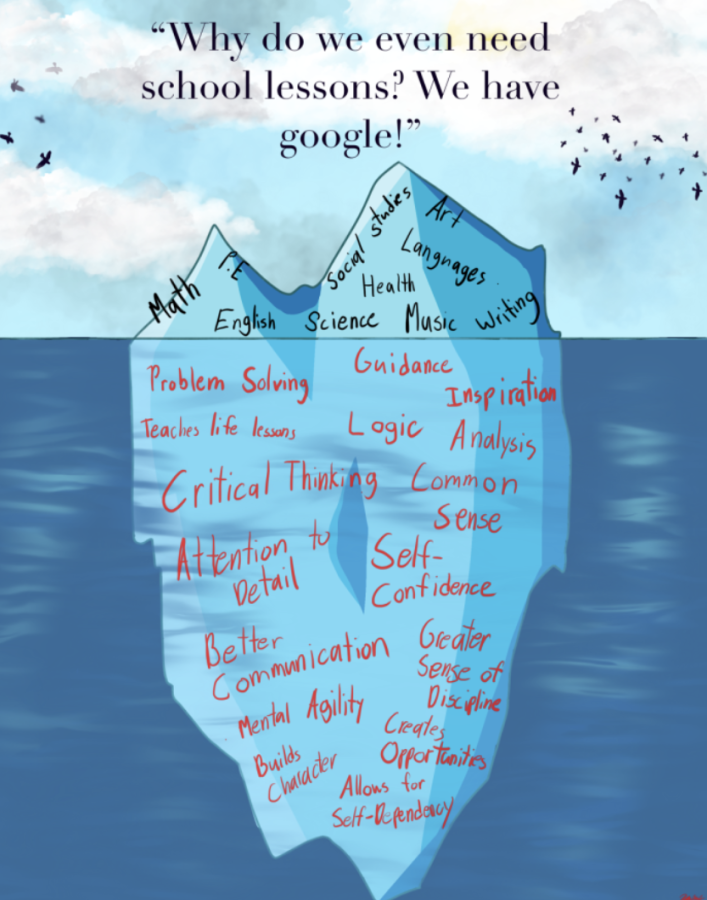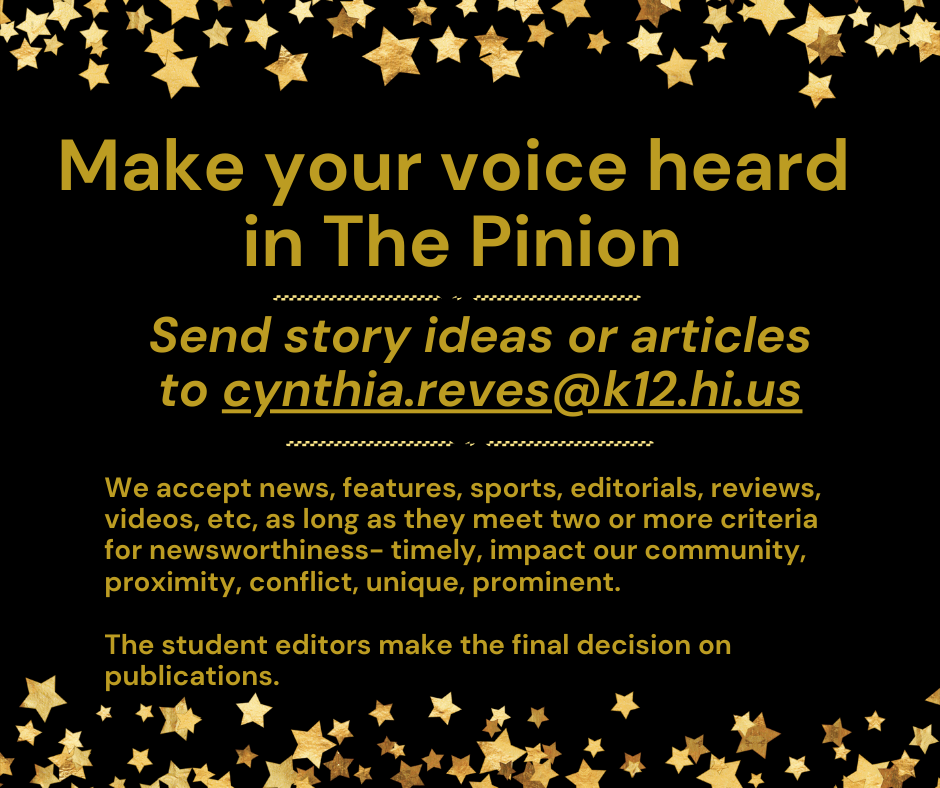Lessons Stay Relevant Beyond The Campus
By Cheska Orias
An Iceberg diagram that shows the hidden values different class lessons can teach.
February 19, 2023
Lessons can be boring, and who else to voice out that kind of opinion if not students. There will always be the usual thought of if these lessons would ever even be used in our daily lives. In a world of calculators and google, learning math and other subjects may seem pointless, as it may not be helpful in our daily lives, but they aren’t here to just give us a hard time at school. These lessons, like algebra and the history of art have values and use that extends out of the confines of the classroom.
Certain school lessons can teach students different values. Lessons like algebra can help students practice their problem solving and logic skills. It can help student’s figure out how to solve problems on their own with the materials that they have at their disposal. Algebraic formulas can be applied to real life as students grow up, and these real life applications should be used more in things like word problems, like if someone would buy a product that would have a price to pay per month, then how much money would they need to pay for a number of months? Students could figure out the payment per month and how many months they would have to pay, then by multiplying them together they would find out how much money they need. If the product has a flat amount when first buying it, then students could use a Y=mx+b formula to find out how much money they need.
The history of countries or art can help us learn from others and from ourselves. The best but cruelest teacher is experience, as you have to go through its exam first before receiving its lesson, but the advantage of documenting history is so that people don’t have to learn the hard way. Through the experiences of others in history, students can learn to avoid making the same mistakes history did. Students may think learning about World War II could be unnecessary, but studying how people like Hitler used propaganda and censorship to push an agenda that Germans should be the superior race can help students realize that they should avoid blindly following information and to think for themselves, teaching them that students should learn how to find information on their own to know what is true. It also can help them to figure out what things are not right and when they should be standing up for themselves.
Argumentative essays that are taught in English class might seem useless, but they are also helpful to students beyond just for tests or homework. It teaches students how to better express their arguments, and make a stand for themselves. Learning how to properly do an argumentative essay teaches students where to put their claim, information, and argument in a manner that helps students get their point through clearly and strongly. This is especially useful when students apply for jobs and colleges, as they need to know how to properly argue on why they should be accepted for that job or college. To do this they need to learn how to highlight their strengths, and learning essays can help that.
These examples are only a few of the things that seemingly useless lessons can teach us. These lessons can be used in places beyond the confines of the classroom. Even in complicated lessons like trigonometry, quadratics, poetry, book analysis, history or culture of other countries, these can help teach students different qualities to make them independent individuals, like how to solve problems on their own with math, how to learn from your and others mistakes and experiences like in history, and how to make a stand for yourself and how to better express yourself like in English class. So the next time students come across a lesson that seems complicated or useless, they should approach it with an open mind, as these lessons always have a secret, and not so secret, lesson to teach.






